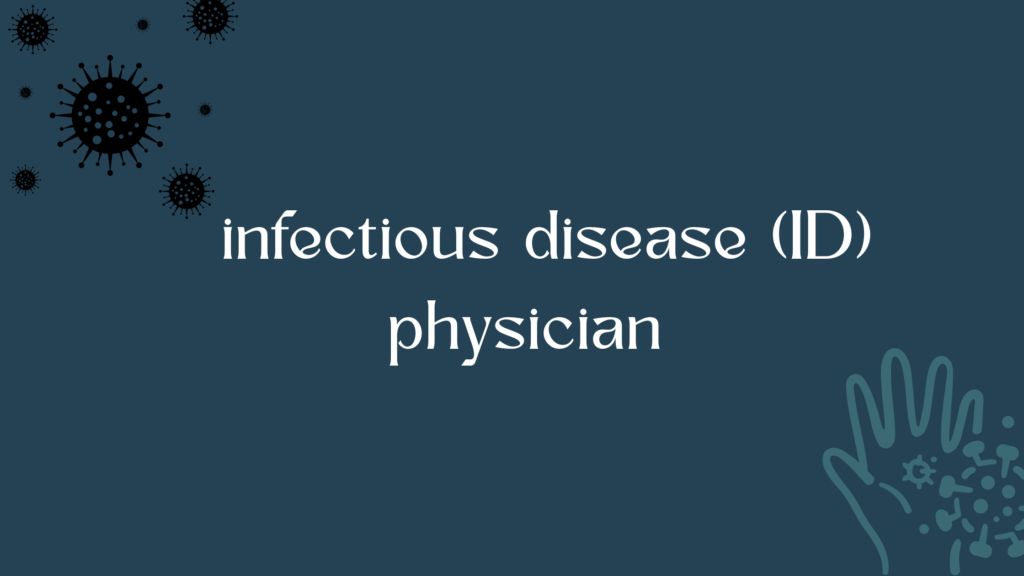An infectious disease (ID) physician is a medical doctor who specializes in the diagnosis, treatment, and prevention of infections caused by bacteria, viruses, fungi, and parasites.
They are the specialists called upon when infections are complex, unusual, resistant to treatment, or involve multiple systems.
🦠 What Does an Infectious Disease Physician Treat?
Common conditions:
- HIV/AIDS
- Tuberculosis (TB)
- Hepatitis B and C
- COVID-19 and other viral infections
- MRSA and other antibiotic-resistant infections
- Endocarditis (infection of the heart valves)
- Osteomyelitis (bone infection)
- Sepsis
- Lyme disease
- Fungal infections (e.g., histoplasmosis, candidiasis)
- Parasitic diseases (e.g., malaria, toxoplasmosis)
Post-surgical or hospital-related infections:
- Wound infections
- Catheter-associated infections
- Hospital-acquired pneumonia
Travel-related and tropical diseases:
- Dengue, Zika, yellow fever, chikungunya
- Traveler’s diarrhea
- Parasites and other endemic infections
🛠️ What Do ID Specialists Do?
- Diagnose complex infections using lab tests, imaging, and cultures
- Develop treatment plans, often involving antibiotics, antivirals, antifungals, or antiparasitics
- Manage chronic infectious conditions like HIV
- Help with infection control in hospitals
- Advise on vaccination and travel medicine
- Oversee antibiotic stewardship programs to avoid overuse and resistance
🧪 Common Diagnostic Tools
- Blood cultures
- PCR and molecular testing
- Serology (antibody tests)
- Imaging (CT/MRI for abscesses, osteomyelitis)
- Lumbar punctures (for CNS infections)
- Travel history and epidemiologic investigation
